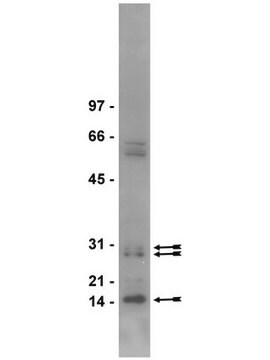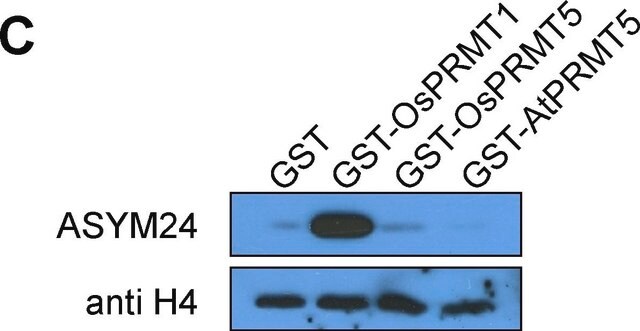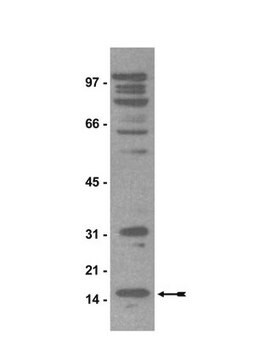09-814
Anti-dimethyl-Arginine Antibody, asymmetric (ASYM25)
serum, from rabbit
Sinonimo/i:
dimethyl-arginine, asymmetric
About This Item
Prodotti consigliati
Origine biologica
rabbit
Livello qualitativo
Forma dell’anticorpo
serum
Tipo di anticorpo
primary antibodies
Clone
polyclonal
Reattività contro le specie
mouse
Reattività contro le specie (prevista in base all’omologia)
rat (based on 100% sequence homology), human (based on 100% sequence homology)
tecniche
western blot: suitable
Condizioni di spedizione
wet ice
modifica post-traduzionali bersaglio
unmodified
Descrizione generale
Specificità
Immunogeno
Applicazioni
Qualità
Western Blot Analysis: 1:1,000 dilution of this antibody detected dimethyl-Arginine on 10 µg of PRMT1 treated and untreated MEF cell lysates.
Descrizione del bersaglio
Risultati analitici
PRMT1 treated and untreated MEF cell lysates
Not finding the right product?
Try our Motore di ricerca dei prodotti.
Codice della classe di stoccaggio
10 - Combustible liquids
Classe di pericolosità dell'acqua (WGK)
WGK 1
Certificati d'analisi (COA)
Cerca il Certificati d'analisi (COA) digitando il numero di lotto/batch corrispondente. I numeri di lotto o di batch sono stampati sull'etichetta dei prodotti dopo la parola ‘Lotto’ o ‘Batch’.
Possiedi già questo prodotto?
I documenti relativi ai prodotti acquistati recentemente sono disponibili nell’Archivio dei documenti.
Il team dei nostri ricercatori vanta grande esperienza in tutte le aree della ricerca quali Life Science, scienza dei materiali, sintesi chimica, cromatografia, discipline analitiche, ecc..
Contatta l'Assistenza Tecnica.








